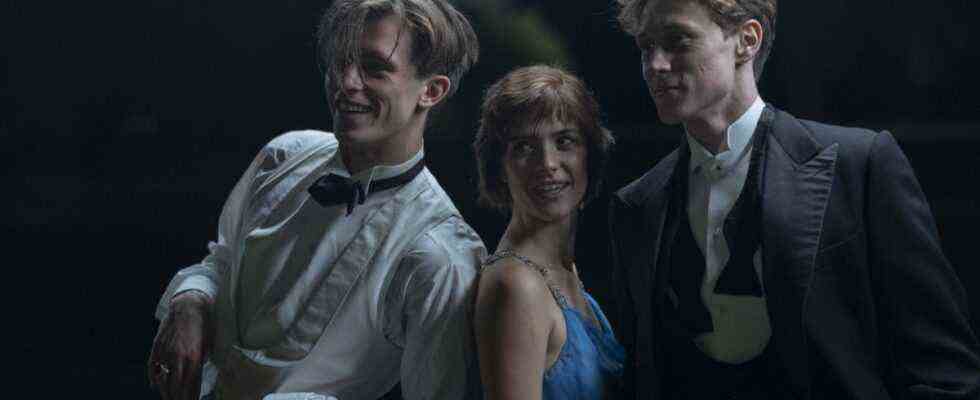The book wasn’t necessarily written as a novel, by Robert Harris, the successful author of historical narration, it was actually intended as a screenplay for a film. In which his friend Jeremy Irons would play Neville Chamberlain, the controversial British prime minister who in September 1938 pushed through the Munich Agreement, with which major powers in Europe decided the fate of Czechoslovakia without the state being allowed to be present at the negotiations, and the impending world war was postponed, once more. Chamberlain is a tragic hero, Harris says, he may fail but there is dignity in his efforts. He discussed the character and role with Irons in 2016 prior to the publication of the novel.
Chamberlain knows that the agreement is only symbolic, but with childish joy he holds out the document to the waiting journalists on his return from Munich at the airport. Jeremy Irons looks very tired, but he’s cool and confident. When you play poker with gangsters, he once explained, you have to have an ace up your sleeve. He knows that the German gangster – in the English version Chamberlain always speaks of “Herr Hitler” – has sinister great power plans and is preparing for war, his employees have clearly documented it for him. For Harris and in this film adaptation of his novel by Christian Schwochow, the irrational obstinacy of his appeasement credo is what makes the character so tragic and the absurdity of this moment in history. Moments of this kind are repeated again and again, including today when the behavior of major powers has to be assessed.
A man face to face with Hitler alone, pistol in hand
Christian Schwochow stages the story, the end of which everyone knows, as a chronicle of the Roaring Thirties, in Berlin, shimmering and with a love of detail. It’s about two young diplomats, one in the German service, the other in the British service, Jannis Niewöhner (from Schwochow’s previous film “Je suis Karl”) as Paul von Hartmann, George MacKay (from “1917”) as Hugh Legate. They both studied at Oxford and are friends. Hugh is ordered to Germany to receive a document showing Hitler’s expansion plans in the days of the conference. You were too young to take part in the great war, Chamberlain explains to Hugh in the garden of Downing Street, and I was too old… Hence his absolute determination to prevent a new world war! He aggressively plucks chunks of bread and places them in a bird feeder.
In 1938, Paul was part of a resistance group planning to eliminate Hitler. Jannis Niewöhner seems frighteningly vulnerable when he takes off his strict glasses with the black frame. A man face to face with Hitler alone, pistol in hand, this is the ultimate form of surreal suspense. One of the impossible moments in history. In this film, Hitler is an unusually bright figure, his beige uniform is unobtrusive, his grimacing is reduced. No hysteria, just a cold loneliness. Ulrich Matthes plays him as one last one standing, no one wants to share his fears about Germany’s future. I can read people the way scientists read their books, he says, giving Paul a piercing look. I’m ready for any dishonesty for Germany, but privately… and he returns the watch he borrowed from Paul.
Munich: The Edge of War, 2021 – Director: Christian Schwochow. Book: Ben Power. Based on the novel by Robert Harris. Camera: Frank Lamm. Editing: Jens Klüber. Music: Isobel Waller Bridge. With: Jeremy Irons, Ulrich Matthes, Jannis Niewöhner, George MacKay, Liv Lisa Fries, Jessica Brown Findlay, Sandra Hüller, August Diehl. Netflix, 123 minutes.

